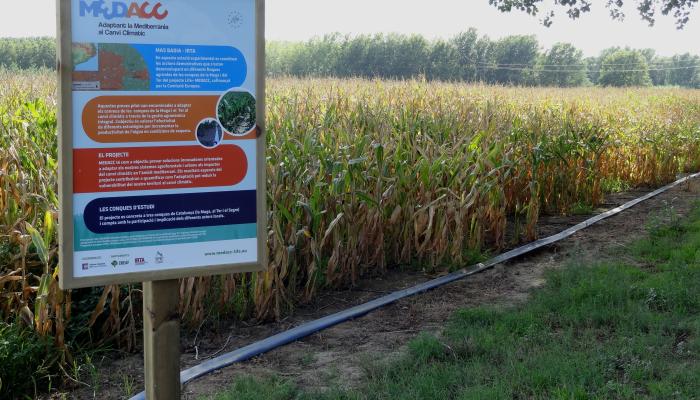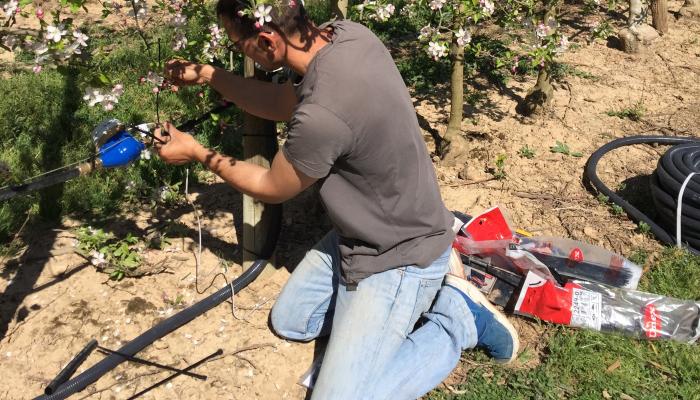
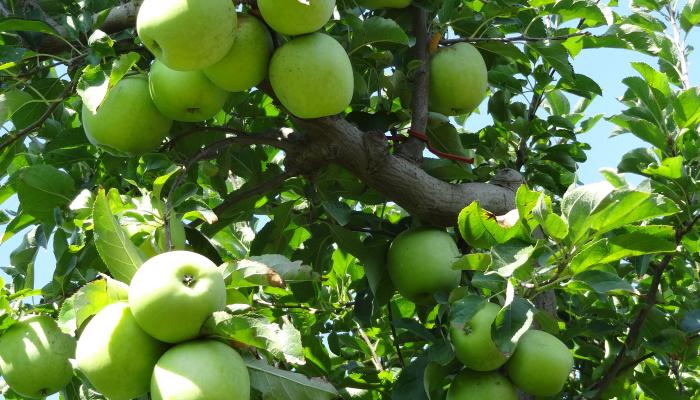
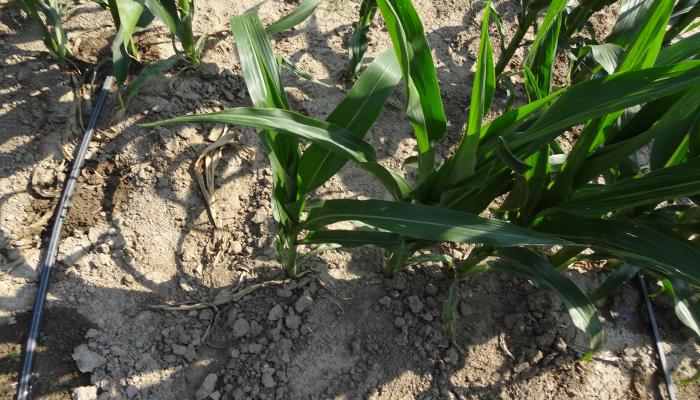
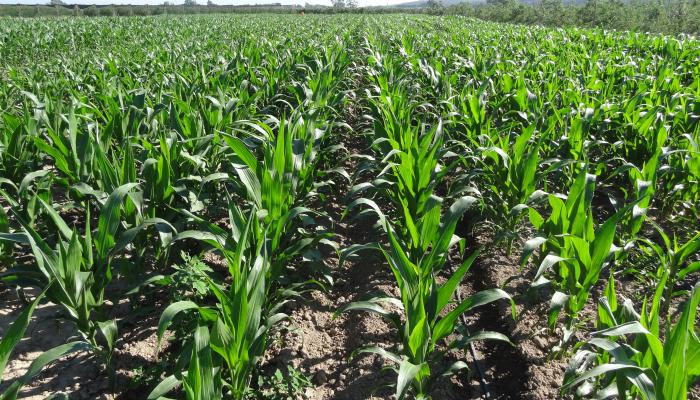
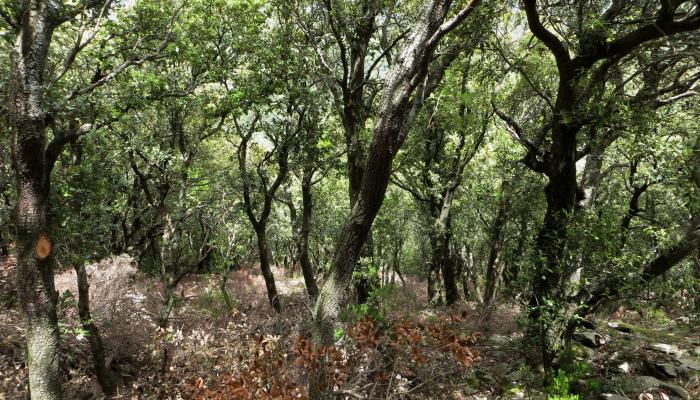
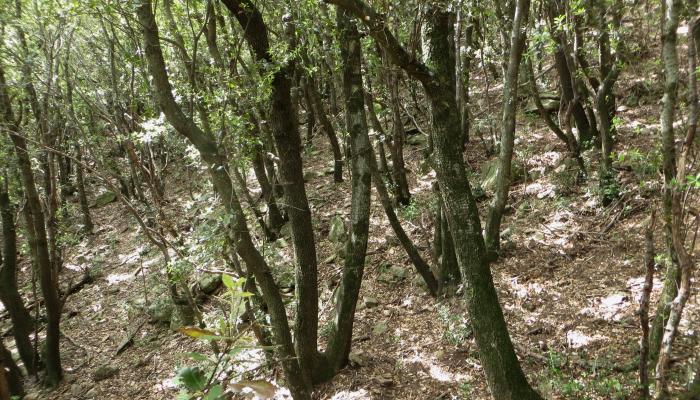
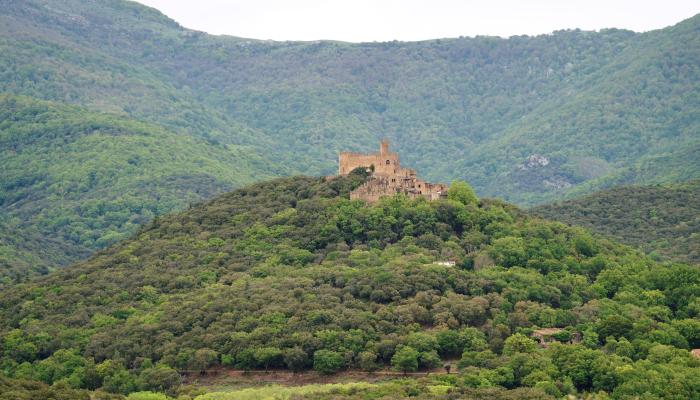
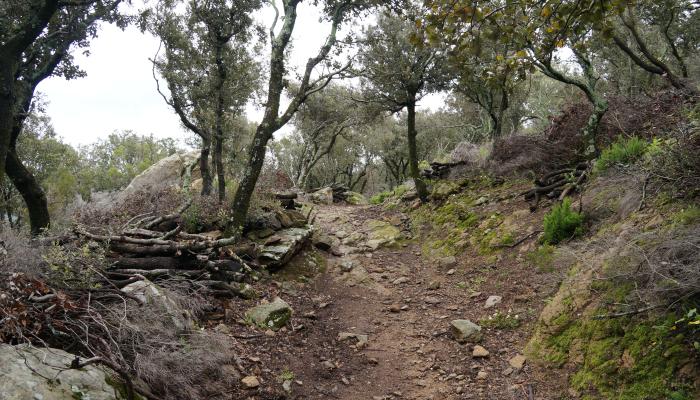
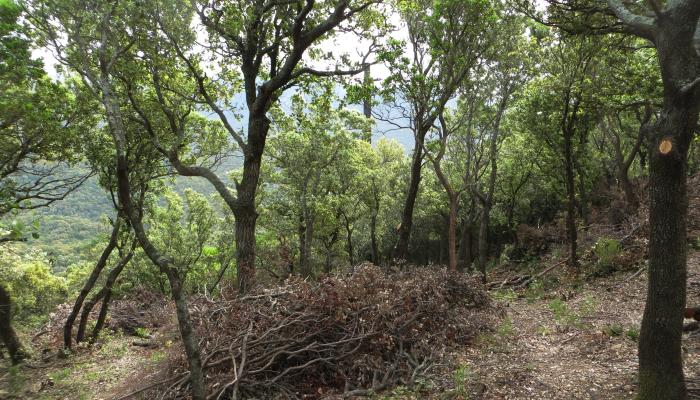
The LIFE MEDACC project aims to develop innovative solutions for adapting our agroforestry and urban systems to the impacts of climate change in the Mediterranean area. A number of adaptation measures have been piloted in the areas of agriculture, forest management and water management. The results of the project contribute to quantifying how adaptation can reduce the vulnerability of natural systems and human activities to climate change, and what are the economic and environmental costs associated with the application or lack of these adaptation measures.
The project was conducted in three representative basins of Catalonia: The Muga, the Ter and the Segre, with the aim of making the results and methodology applicable in the design of similar experiences throughout the Mediterranean area.
Both forests and crops in the Mediterranean area are going to be – in fact, are already being – seriously affected by climate change, particularly by episodes of severe water scarcity and drought combined with extended periods of exceedingly high temperatures. This will aggravate, in the case of forests, water stress and the risk of fires and, in the case of crops, it will generate increases in the demand for water that will hardly be able to be met in a generalized context of scarcity in the basins.
MEDACC uses the watershed as a frame of reference. The three basins chosen – those of the Muga, Ter and Segre rivers – represent a great diversity of topographical, climatic, and environmental conditions, as well as different land uses and water demands. In addition, they are subject to different pressures on water resources, pressures that may worsen in the future. As an example, while in the Segre agriculture accounts for 95% of the demand for water, in the Ter urban consumption reaches 74%. Over the last six decades, the reduction in circulating flows in the headwaters of the rivers analysed as a result of the increase in temperature, the reduction in precipitation (especially in summer) and the increase in evapotranspiration has been worrying. Thus, in the Segre basin, the reduction in flows at the headwaters is 28%, in the Muga river, 49% and in the Ter in the order of 42-57%.
In the forestry field, the project has highlighted the need to intervene in Mediterranean forests which, after being subjected to heavy secular exploitation, have been abandoned in recent decades due to rural depopulation and the increased use of fossil fuels. This has resulted in very dense and immature forest masses and, consequently, extremely sensitive to water stress and with a substantial risk of fires.
Different pilot actions have been designed, implemented, and monitored to help quantify the effects (positive and negative) of the implementation of adaptation measures in the following sectors:
- Domestic and urban water use: the project has investigated optimal water management processes to achieve savings in an environmentally, energy and socially efficient way.
- Agriculture: the project aimed to demonstrate the effectiveness of measures to reduce water stress linked to agricultural consumption. This includes working with different crop varieties, irrigation systems and sustainable soil management techniques.
- Forests: Pilot actions have helped quantify the effects of forest management on forest health, water availability and fire risk.
In addition, the impacts of climate and land-use changes, and the vulnerability of the selected watersheds have been assessed in detail.
Overall, those areas, systems, and economic sectors most sensitive to climate change were identified.
A diagnosis was made of the adaptation measures have been previously applied to the study basins and what effect they have had. Based on the results obtained from the modelling of socioeconomic and climate scenarios in the three basins studied for the 2030-2050 horizon, it was proposed which adaptation measures should be implemented in water management. New adaptation measures were defined and some of them were implemented as pilot tests (agricultural and forestry)
- The effects of the pilot tests in the three basins were monitored.
- The results were disseminated through different networks and platforms.
- The project is field-testing different adaptation strategies aimed at reducing the vulnerability of Mediterranean forests and crops to climate change. And it also seeks to assess the economic and environmental costs associated with the application – or lack – of the various measures.
In the field of forestry, the project has highlighted the need to intervene in Mediterranean forests which, after being subjected to heavy secular exploitation, were abandoned in recent decades due to rural depopulation and the increased use of fossil fuels. This has resulted in very dense and immature forest masses and, making them overly sensitive to water stress and with an elevated risk of fires. The proposal made by LIFE MEDACC is to reduce the density of trees to accelerate the natural process of succession to more mature forests. To this end, different treatments have been applied – mainly thinning – in different environmental conditions, slope, soil depth, etc. This approach has allowed for assessment of which treatments work best in each situation and provided information on their costs, to then specify the appropriate management recommendations in each case.
Along with these specific forest management practices, there is also evidence of the need to strengthen extensive livestock farming and maintain and recover traditional mosaic agroforestry landscapes, which support greater biodiversity and are less vulnerable to different impacts.
As for agriculture, various methods have been tested on corn and apple tree crops that have allowed - at low costs - water savings of between 20% and 30%, while maintaining production. The methodology is based on applying simple technologies to know, as accurately as possible, the environmental conditions and weather forecasts in the different crop plots and, with this data, calculate exactly the weekly water contributions that each plot requires. This information is then transmitted to farmers who, in this way, can significantly increase irrigation efficiency, reduce costs, and contribute to improving the availability of water in the basin at the same time.
Case developed, implemented, and partially financed as a measure of Adaptation to Climate Change of agroforestry and urban systems in the Mediterranean area.
The Catalan Office for Climate Change has coordinated the development of the project and the work of the different participants, taking particular care of the tasks of institutional relations, the link with the different actors in the territory and the impact of the project on the environmental policies of Catalonia.
The Centre for Ecological Research and Forestry Applications (CREAF) has carried out the technical coordination of the project, focusing on the assessment of the vulnerabilities to climate change of the study basins, the compilation and analysis of adaptation measures already applied, the definition of new adaptation measures and the implementation of pilot tests in the forestry field.
The Pyrenean Institute of Ecology (IPE) participated in the hydro-climatic modelling of the study basins and coordinated the integration of the data collected in the project and its results into an information platform.
The Institute of Agri-Food Research and Technology (IRTA) provided its knowledge and experience in the agricultural field and led the implementation of the pilot tests.
Different actors in the territory – from the fields of administration, academia, environmental, services and tourism, etc. – participated in various phases of the project, contributing their knowledge and experience.
The results were disseminated through different networks and platforms, as well as in conferences, international workshops, technical seminars, agricultural fairs, among others.
The Life Shara project - Awareness and knowledge for adaptation to climate change has presented in three formats (video interview-report, written report, and panel speaker) the initiative and actions of adaptation to climate change of the Life MEDACC project.
The project is field-testing different adaptation strategies aimed at reducing the vulnerability of Mediterranean forests and crops to climate change. The results of the project contribute to quantifying how adaptation can reduce the vulnerability of natural systems and human activities to climate change, as well as the economic and environmental costs associated with the application or lack of these adaptation measures. Thus, it is possible to check which treatments work best in each situation, and also, to know their costs, to then specify the appropriate management recommendations in each case.
The MEDACC project emphasizes the need to strengthen efforts to conserve and improve forest masses, especially in the headwaters of rivers, given the enormous environmental services they provide us, not only in terms of aesthetics and recreation, but also in terms of water availability and quality, air quality, biodiversity maintenance, etc.
It also reveals the urgency of implementing public adaptation policies for agroforestry systems, for which it is essential to improve urban-rural dialogue so that society, as a whole, assumes the costs of keeping the rural environment alive.
The budget of the project is €2,548,841 and has a contribution from the European Commission of €1,266,208.
The combination of hydrological simulations and three land cover scenarios has confirmed a strong influence of the forest area on the generation of flows. In some pilot tests, a seasonal increase in soil moisture was observed where forest management has been executed. During spring and summer, higher soil moisture correlates favourably with tree growth and health, as well as reduced flammability and combustibility of vegetation in periods of high fire risk, and in other cases reduced decay.
Regarding agriculture, various methods were assessed on corn and apple tree crops that achieved — at low costs — water savings of between 20% and 30%, maintaining production. In the case of apple trees, the production value of the plot that has followed this method has been €32,850/ha, which represents an increase of 4.2% compared to the control plot.
On the other hand, in a study framed in the project, it was proposed for the Alt Pirineu area (Segre basin) to allocate half of the current useful agricultural area (in which crops for animal feed predominate) to crops for human food, which are much better adapted to climate change scenarios for the 2030-2050 horizon and with greater economic profitability. This measure would be offset by an increase in extensive grazing, which over time has been losing importance in favour of stabled livestock. This study concludes that the gross income of the agricultural sector in this future scenario could reach €181.1 million compared to the current €84.3 million or the €76.7 million expected in the same 2030-50 scenario if the current management is maintained.
Compliance with the Catalan Strategy for Adaptation to Climate Change (ESCACC 2013-2020):
- MEDACC is designed to contribute to the development of adaptation strategies and policies in the Euro-Mediterranean area. It is a key tool in the deployment of the ESCACC, which means that the project must align with and comply with the guidelines and objectives established in this regional strategy.
Implementation of Regional and National Adaptation Guidelines and Policies:
- The project operates within the framework of adaptation policies being developed at the regional and national levels, ensuring that its activities and outcomes are effectively integrated into broader climate change adaptation efforts.
Environmental and Resource Management Regulations:
- Project activities, especially those related to water management, agriculture, and forestry, must comply with local and national environmental laws regulating these sectors. This includes compliance with regulations on water use, forest management, and sustainable agricultural practices.
Integration with Research and Innovation Initiatives:
- Since MEDACC is also branded as a research and innovation project, it must adhere to relevant regulations regarding the experimentation and application of modern technologies and methods in natural and urban environments.
5 years (July 1st, 2013-June 30, 2018)
Gabriel Borràs
Tel: 93 444 50 00
Av. Diagonal, 523-525 08029 Barcelona



